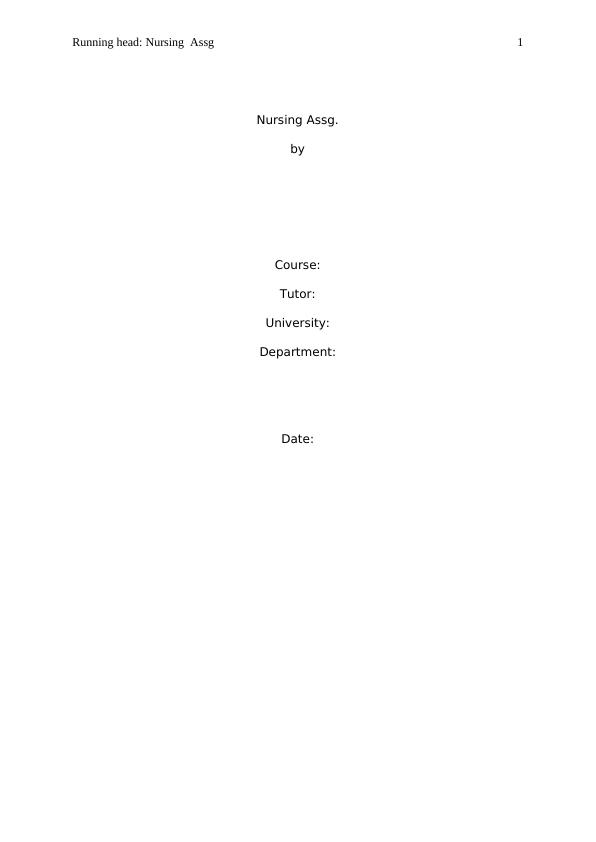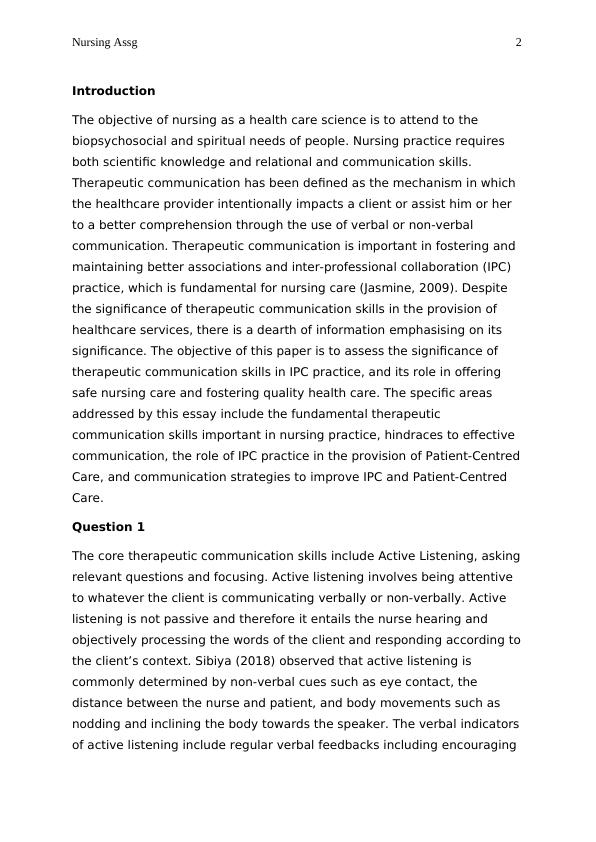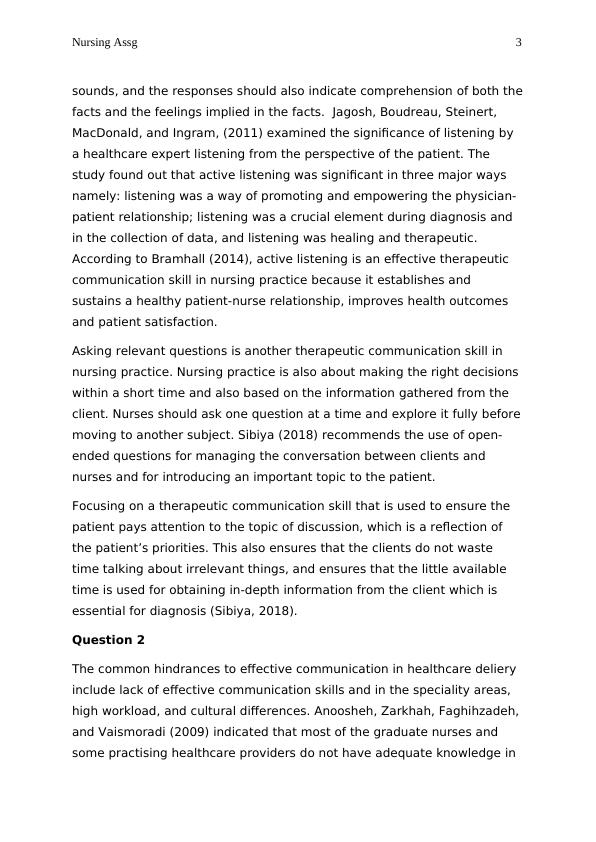Significance of Therapeutic Communication Skills in IPC Practice
9 Pages1799 Words317 Views
Added on 2023-04-07
About This Document
This essay assesses the significance of therapeutic communication skills in IPC practice and its role in offering safe nursing care and fostering quality healthcare. It discusses the fundamental therapeutic communication skills, hindrances to effective communication, the role of IPC practice in patient-centered care, and communication strategies to improve IPC and patient-centered care.
Significance of Therapeutic Communication Skills in IPC Practice
Added on 2023-04-07
ShareRelated Documents
End of preview
Want to access all the pages? Upload your documents or become a member.
Therapeutic Communication Skills and Inter-Professional Collaboration in Nursing
|8
|1847
|470
Communication Skills and Developing a Therapeutic Alliance
|11
|756
|9
The base of the healthcare system
|5
|1296
|18
Effective Communication Skills in Nursing Practice
|7
|1480
|88
Communication Skills for Nursing and Health care students
|9
|2166
|96
Assignment on Effective Nurse Patient Communication
|8
|1666
|24



